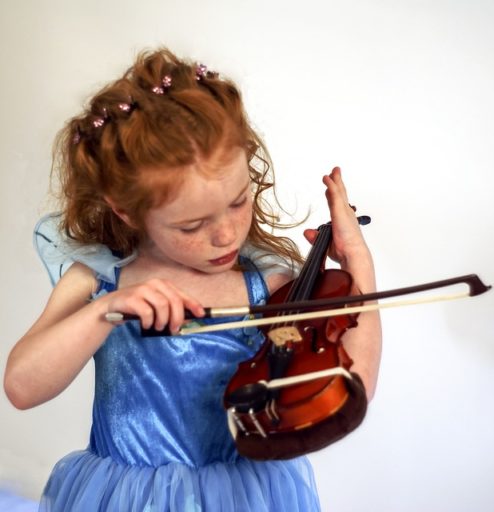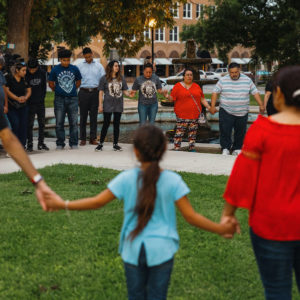I don’t know whom to approach about getting an item added to the Great Reset agenda, but I have a proposal on behalf of all parents, grandparents, and anyone else in the blessed but tumultuous orbit of a child. (If you’re unfamiliar with the Great Reset, it’s a conspiracy theory about a secret plan to remake the entire world economy, and at the same time an actual proposal to remake the entire world economy that nobody has kept secret from anyone, which means that in true post-modern, pre-apocalyptic American fashion, we have taken an undisputed fact and turned it into something people can both believe and not believe simultaneously, or not believe and believe simultaneously, the only condition being that if you are a believe/not believer, you must swear a blood oath to fight the not believe/believers when American Civil War II finally kicks off in theaters and neighborhoods near you.)
What I propose is that after we all get our vaccine shots (and if the Great Reset controversy is a surprise, wait until you hear about what the pro- and anti-vaxxers have to say on that score), after men have re-learned how to press a pair of pants, after ladies have re-adjusted to wearing heels, after society claws its way out from under the rubble of Amazon boxes and Door Dash delivery cartons to busy itself with a return to normalcy, let’s all pretend school recitals never existed.
I am entirely serious. And I mean every school, and every manner of recital. No more Christmas pageants. No more science fairs. No more squawking violin concertos.
We needn’t say a word about it. We can all just quietly agree never to mention recitals again. And agree further to beat, to within inches of their sadistic lives, any teacher, administrator, PTA president, or tutor who tries to schedule a recital ever again. For the sake of poetic justice, I suggest that for the beatings we use those ass-flattening folding chairs that are—aside from the untalented tots forced to perform at these exhibitions of cringe—the chief instruments used to torture us adults for loving our children.
The kids will go along, trust me. These are, after all, the very same creatures who can pass a half-eaten burrito on a plate for weeks on end without noticing it. They know how to not see things—how else can they go on loving the likes of us?
You might be wondering how I can be so confident that our children will be happy to let recitals drift into oblivion. How do I know? Because I have been to scores of recitals and exhibitions, for music, for dance, even Lego robotics. The only people who are more obviously, thoroughly miserable than the adults are the children. Think about it: What normal child has ever said: “Hey, I’d like to put on my church clothes and sit with thirty other kids, awaiting my turn to demonstrate my tenuous grasp of this practice to which you’ve shackled me like a slave in the belly of a galley ship?”
It’s been a hard year for children; we should grant them this one small grace that is entirely within our power to give. If they want to perform for an audience, they’ll put their gaming sessions or memes or dance routines on social media, taking care first to block us parents from seeing them. Our children no more want us to see them flail in the early stages of mastery than we wanted our grandmothers hovering overhead while we learned how to French kiss.
And when they do want to show us what they’ve learned, they have this remarkable ability to say so. All we who have been awakened at 5:30 A.M. by a toddler who wants to tell us that he wiped his own bottom after pooping know exactly what I mean. Children love to show us what they’ve learned, but in their time, and on their terms. Not as part of a cattle call.
I know there are curmudgeons who will object. It’s good for the kids, they’ll crow. I am here to tell you that it is not good for the children, nor for anyone laboring to keep his love for a child alive. I mean, have you met children? Sustaining affection for them is hard enough some days, without having it rubbed in your face that they are, much like you and all the generations before you, at best mediocre in nearly everything they will ever attempt.
The cruelest irony is that we’ve already witnessed the performance our children’s teachers are packing us in like cattle to endure. They’ve been practicing in anticipation of this dreaded event for weeks, in our homes. (I once suggested that my children practice violin in the back yard, but they explained that the 27-degree temperature would wreak havoc on their strings. I refrained from saying that freezing was the least of their strings’ miseries.)
The only parents who want to see their kids in a recital are the parents of the two kids who actually know what they’re doing. Those show-offs. The only enjoyment any of the rest of us are going to experience is if someone’s four-year-old happens to bust out a dance from Breakin’ 2: Electric Boogaloo during “Silent Night.”
Finally, just ponder with me for a moment the twisted lesson that recitals teach our children about excellence. Does a baker want you to sample the batter before the cake is done? No, he absolutely does not. Does an electrician ask you to flip the switch before she’s finished wiring your new appliance to the breaker box? Of course she doesn’t. Does your mechanic call you back to see your half-assembled transmission? Does the surgeon wake you mid-appendectomy to ask if you’re feeling better?
No, no, and again I say: No. Why then would we corral a hundred law-abiding, hard-working adults, stuff them assholes-to-elbows inside a classroom or auditorium or other institutional confinement every healthy adult has labored to escape from—and make them witness the struggles of children who are years away from craft mastery? The teaching isn’t done yet. Tell me when the violin will stop sounding like a cat being skinned, and I’ll happily put that date on my calendar.
Please, God, tell me when the violin will stop sounding like a cat being skinned.
Tony Woodlief lives and writes in North Carolina. His short fiction has appeared in Image, Ruminate, Saint Katherine Review, and Dappled Things, while his essays about parenthood and faith have appeared in The Wall Street Journal, Comment, and The London Times. He runs a website for fathers called Intentional Fathering, and can occasionally be found on Twitter.





